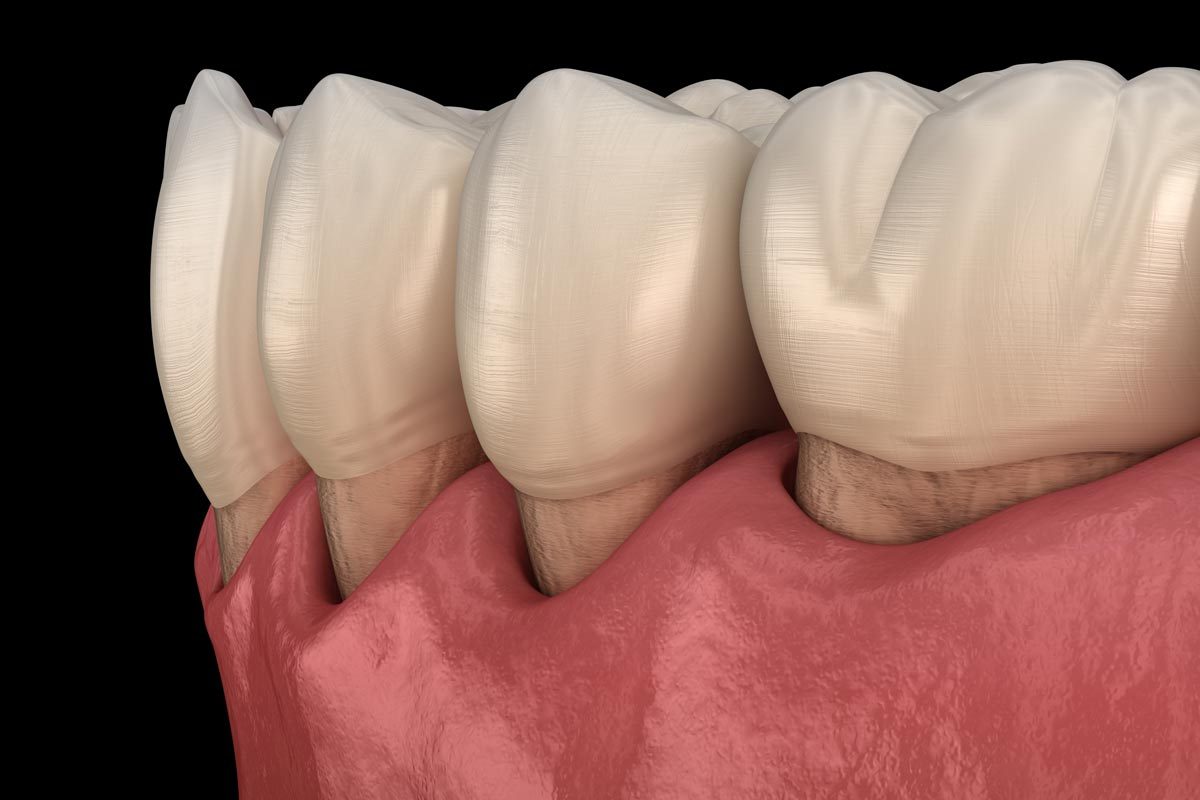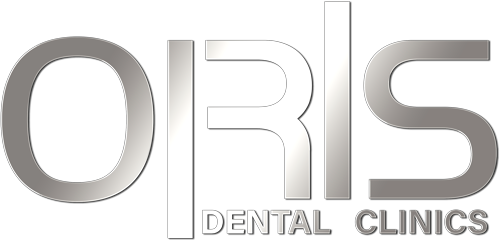Gum recession is a condition where more of the tooth or the tooth’s root is exposed as the gum tissue that covers the teeth recedes or fades away. Gum recession causes “pockets,” or spaces, between the teeth and gum line, which makes it simple for disease-causing bacteria to accumulate. The bone and soft tissues that support the teeth can suffer severe damage if left untreated. So, it could lead to eventual tooth loss.
Gum Recession Symptoms
Exposure to the root is the most obvious symptom of gum recession. Indicators of a gum recession include the following:
- Your teeth feel more sensitive, such as sensitivity while flossing and brushing your teeth.
- Teeth that seem longer than usual
- A notch or pocket at the gum line (where the gum meets the tooth).
- Reddened, swollen gums
- Visible tooth roots
- Loose teeth
Gum Recession Causes
Gingival recession is a result of poor oral care and periodontal disease. Plaque and bacteria start accumulating on the teeth and gums at first. Over time, plaque attached to the gums harms them and pulls them away from the teeth. In some situations, pockets can develop between the gums and teeth. As a result, plaque and germs can flourish and multiply. Unfortunately, even those with adequate oral care can experience receding gums. The following factors mainly cause gum recession:
- Excessively aggressive or forceful brushing.
- Tartar or plaque buildup on teeth.
- Periodontal illness.
- Damage or trauma to the gum tissue.
- Unusual tooth alignment (misalignment).
- Smoking.
- Pierced lips or tongues.
- HIV
- Diabetes
- Hormonal changes in women
- Family history of gum disease

Nonsurgical Procedures
- Topical Antibiotics: A periodontist can decide the best action to protect your teeth and gum tissues. First, antibiotics might be prescribed if an infection is discovered in the gums.
- Orthodontics: Repositioning is a different method to stop gum recession. Once the gum margin is corrected, various techniques are performed to reposition the gum tissue over the tooth slowly.
- Scaling and Root Planing: Scaling and root planing are two principal treatments your dentist might advise for gum recession. This is similar to giving your teeth a good cleaning. These methods involve the removal of plaque and tartar from below the gum line that is impossible to remove by regular brushing. A unique tool is then used to smooth out the roots, aiding in the gum and tooth reattachment.
- Pink Porcelain or Composite: You can use this substance to close the space between your gums and teeth since it matches the color of your gums.
Gum Recession Surgery
The most reliable and durable treatment for gum recession is gum graft surgery. A periodontist (gum specialist) typically carries out this procedure.
In this treatment, the periodontist cuts a flap of skin at the roof of your mouth (palate), and tissue from beneath the flap—known as subepithelial connective tissue—is taken and then stitched to the gum tissue encircling the exposed root. Your surgeon stitches the gum graft in place after placing it in the ideal location. Although gum grafting treatments come in a variety of forms, it’s crucial to remember that this process requires good oral health care to be effective over the long term.
Advantages of Gum Grafting
Above all, gum tissue grafts have several advantages. For instance, they can:
- Lower the risk of gum disease
- Lower your chances of developing cavities or gum disease (Teeth roots that are susceptible to deterioration)
- Reduce tooth sensitivity
- Improve the look of your smile.
In conclusion, gum recession is a problem that you shouldn’t neglect. So call us at ORIS Dental to schedule an appointment if you live in Richmond Hill, Ontario and your gums are receding. Some procedures can restore the gum’s health and stop additional harm. Because the best method for stopping gum recession varies from case to case, the dentist may advise a graft in some circumstances.




